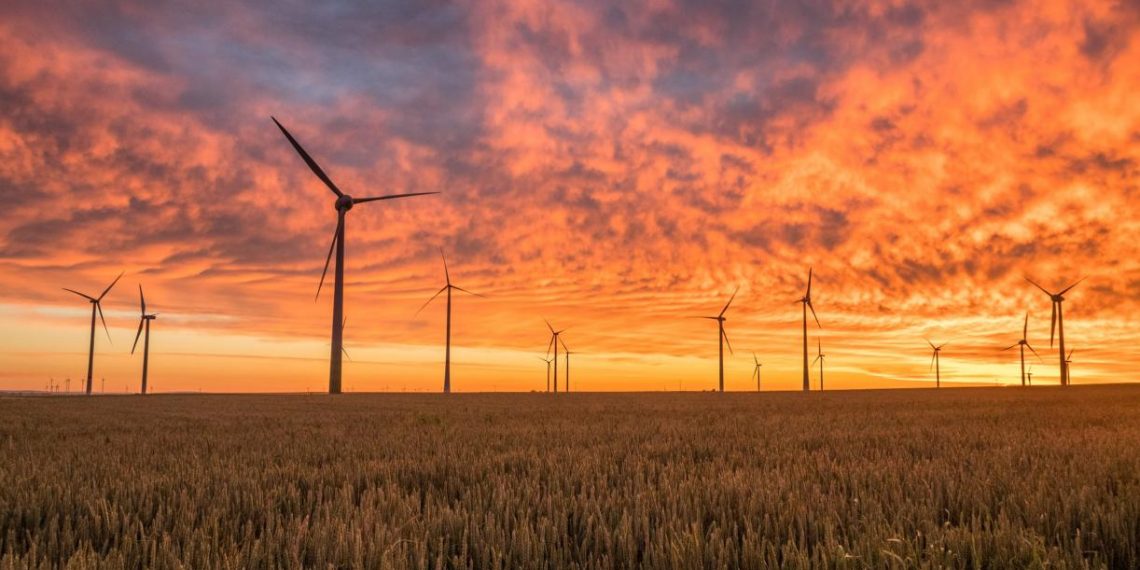Electricity, natural gas and oil prices have risen globally in recent months, causing hardship for many people around the world. Europe is at the center of the crisis, with natural gas prices increasing 400% last year, raising household bills and putting multiple energy companies out of business.
Other countries like China, Brazil and the United States have also experienced higher-than-normal energy prices. Global oil prices are at the highest level in seven years. Here, we unpack the causes and the effects of the energy crisis and what that means for the future of clean energy.
COVID-19: A Historic Energy Supply and Demand Shock
The energy crisis has been caused by multiple overlapping factors on both the supply and demand sides, driven by the pandemic. The pandemic caused a market disruption larger than the world has ever seen before.
Energy demand dropped sharply in 2020 during various lockdowns around the world. Prices fell, so fossil fuel production and investment in fossil fuels decreased. In China and elsewhere in the Northern Hemisphere last winter was especially cold, depleting coal and gas stockpiles. The pandemic also caused energy producers to postpone maintenance and repair work, slowing everything down.
Then, in 2021, as demand rebounded strongly, energy supply was unable to ramp up fast enough, causing the price increases. In normal times, these market forces would have re-balanced themselves toward a price equilibrium, but with COVID supply chain disruptions, shipping delays and protectionism, global trade was inadequate to balance the supply and demand fluctuations and shortages.
On top of all this, and perhaps most crucially, oil and gas producers like Russia and Saudi Arabia reportedly restricted gas and oil production for export to keep prices high and maximize their profits and strategic position.
Clean Energy is Not the Problem. It’s the Solution.
Some commentators have claimed that renewables are the cause of the energy crisis Europe is experiencing. They point out that the biggest spike in European electricity prices coincided with lower-than-average wind generation, but in reality this only temporarily added some pressure on electricity markets. Wind generation in Europe has resumed adequate production; in fact there were record amounts of wind power at the end of the year while energy prices continue to be high.
Based on our analysis, the amount that electricity prices have spiked in a given country does not seem to have a strong correlation to its level of wind and solar energy production.
China, which has about 10% wind and solar electricity, experienced a major electricity crisis. The U.S., at 12% wind and solar, has largely avoided it. Less than 1% of Singapore’s electricity comes from wind and solar, yet Singapore’s wholesale electricity prices spiked by six times in November of last year.
As International Energy Agency (IEA) Director Fatih Birol puts it, the problem is not that there is too much clean energy — it’s that there is too little. The world has been chronically underinvesting in energy supply and transmission infrastructure. Global energy demand has been increasing over the past five years but total spending on energy has been flat.
The mismatch between energy supply and demand is not a sign to slow down the low-carbon transition. In fact, it is a call to ramp up clean energy, energy efficiency, and infrastructure investments to ensure continued reliable and resilient supplies. This would make countries in Europe and elsewhere less vulnerable to geopolitical or economic choices by suppliers.
The Advantages of Renewable Energy
One advantage of renewable energy is that the power prices are generally stable. Once the solar and wind farms are built, all they need is the sun or the wind. In contrast, electricity from gas or coal requires continuous fuel supply, which is vulnerable to disruptions in production and transport.
Fossil fuel price spikes like this have happened before and will happen again. Meanwhile, the costs of solar have dropped 85% since 2010 and the costs of both onshore and offshore wind have dropped about 50%.
For residential or commercial energy users, investing in renewable energy, energy efficiency or other climate-friendly technologies can be a buffer against the market forces that affect fossil fuels. European households equipped with solar panels are saving an average of 60% on their monthly electricity bills during this crisis.
Meanwhile, in the U.S., households heated with electricity will be largely unaffected by the crisis, only expected to see a 6% increase in their bills compared to last year, while households heated with natural gas are expected to spend 30% more.
Increased investment in renewable energy will increase supply and reduce prices. According to the IEA, if the world invests enough in clean energy to reach net-zero emissions, average household energy bills in advanced economies will be lower in 2030 and 2050 than they are today. This is not to mention that renewable energy creates more jobs than fossil fuels.
Challenges Renewable Energy Must Overcome
None of this is to say that the transition to clean energy will always be smooth and easy. As renewable penetration grows, it will be important to invest in solutions that can address weather related variability, such as long-duration energy storage solutions.
Governments also need to expand and modernize transmission and distribution grids to increase reliability, efficiency and accessibility. It will be essential to bolster energy systems with protections against severe weather-related events, such as fires, hurricanes and heat and cold waves.
In the short-term, governments of countries affected by the energy price hikes will need to take measures to assist vulnerable households. This can be done by directly providing money to these households to help with their bills and investing in energy efficiency to reduce the energy burden that consumers shoulder.
Then in the longer term, governments should ramp up investment in clean energy generation and storage. This is the best way to avoid future energy price spikes and address energy poverty challenges.



